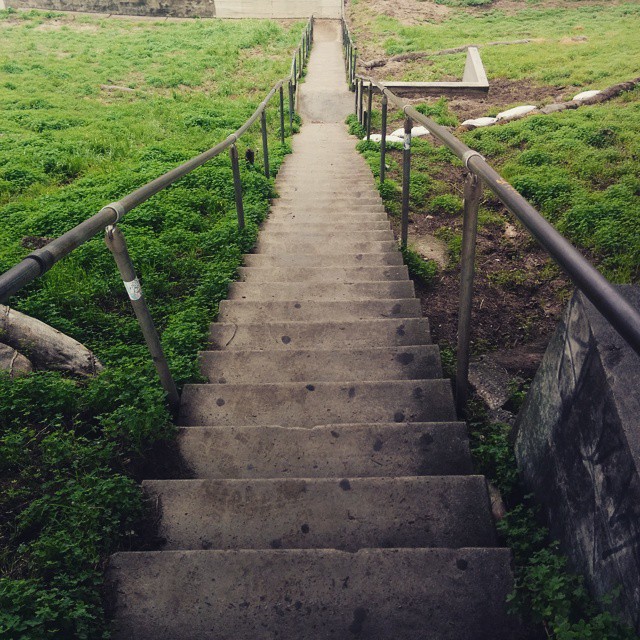It's been a long time coming, but you've finally made the decision: you're going to leave the security of your current career to go do that thing. That thing that keeps you up at night, consumes your weekends, and gnaws at you to do it. Your passion.
That's great. So what now?
You hand in your resignation letter, shake hands with your boss, your colleagues, and there it is: sweet, sweet freedom. To do that thing.
That's great. But after that initial high comes more of the same question–what now?

^ literally "steps."
While it's easy to envision leaving whatever position you're in, there are some practical considerations to keep in mind when you're making your decision to take your passion full time. When I left my career in public relations (a field I'd been in since graduating in 2009) to follow my passion for teaching (something that I'd always wanted to pursue), I had an end goal in mind: become a teacher. The problem was, I hadn't really charted the steps to reach my goal, so my initial roadmap consisted of the following:
- Hand in resignation letter
- ???
- Become teacher!

^ and Post-Its. A good plan always includes Post-Its.
After some careful consideration, I decided that this needed to be re-evaluated, and that's how I learned that if you're going to follow your passion, you need some solid planning. Here are my three major steps that helped me make this jump, and three things that I'd definitely account for from the onset if I had to do this again.

^ this is a poorly drawn plan.
1. Logistics make the world go 'round
When I initially decided that I wanted to leave my career in public relations for teaching, I didn't bother thinking of the process of applying to faculties of education, where I'd live, how I'd get to school or what exactly I'd do if things didn't work out. Thinking about logistics makes you think in the most practical way possible, and also makes you think about things that don't catch your attention when the phrase "following your passion" is mentioned.
2. $$$
Yeah, I know. You didn't get into whatever it is you're passionate about for the money, but let's be real: you still need to get money from somewhere, and whether that's a piggy bank, the end of some rainbow, or from a plain old part time job, you need it. And while following your dream is nice, rent needs to be paid, and you need to eat. To be completely honest, this is where I spent the most time planning, and unless you're rolling in money, be prepared to budget and come up with a solid gameplan that accounts for (almost) every possible situation. And speaking of "almost," this is where my next practical point for following your dreams comes into play...
3. Plans on plans on plans on plans
It's a scary thought, but sometimes things just don't work out. Whether it's a job, a relationship or following that aspiration of yours, there's going to be times where things don't come together the way you planned. So what's the way around this? Plans, and then plans for those plans if they don't work out, and then a contingency if the other two plans didn't work out, an extra plan if that one fails, and maybe one extra alternative plan for good measure.
I'm a master of worry, and when I was getting ready to leave my public relations position, I killed my inclination to worry (mostly) by coming up with lots of plans.
If you're already privy to this, that's great, but if not, here's some questions to ask yourself when coming up with your plans (you don't have to write everything out explicitly, but these are questions that I asked myself to form my plans and their contingencies):
- Since you're leaving your primary source of income, what are you going to do for money?
- Where are you going to live? If that doesn't work out, what do you do?
2a. (If 1 and 2 are figured out, move on to steps 3 and 4.) - Attend school.
- Become a teacher
- If one component of your plan doesn't work out, how will that affect everything else?
In this list, step 2a and step three are arguably the most crucial steps, as they're the ones that determines whether or not you make a contingency. If, to you, a specific component not working out creates a significant ripple effect on your overall plan, then it's time to come up with your course of action if things don't work out.

And that's it! Some practical steps for following your passion. A lot of the time, it's easy to go the romantic route and picture yourself leaving your job at the drop of a hat, and riding off into the sunset, jobless, but free. It works in the movies, but rarely in real life, especially if you enjoy things like eating or having a roof over your head.
Having said all that, I hope this practical advice proves helpful in whatever suitless pursuit you're chasing. Onward!

